Port Talbot's Specific solar energy centre awarded £26m
- Published
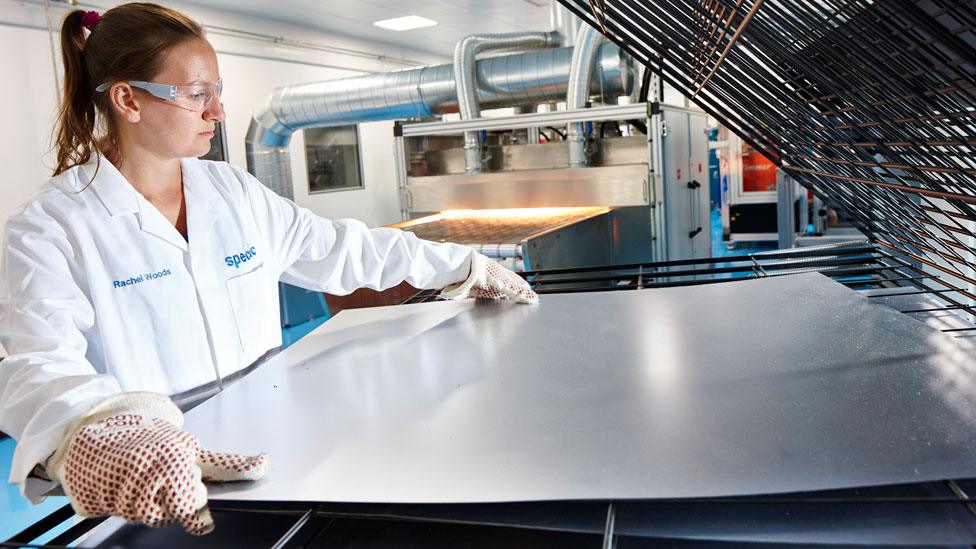
More than 130 scientists and product developers are working at the centre
The drive to develop smart technology so homes and businesses can generate their own solar energy has been given £26m funding.
The Port Talbot-based Specific innovation centre, external is working on the concept of "buildings as power stations".
The project involves Tata Steel, Swansea and Cardiff universities, and firms including BASF and Pilkington.
More than half the funding is from the European Union.
'Significant reduction'
The technology being developed aims to enable homes, offices, shops and factories to generate, store and use their own solar energy.
It involves creating innovative coatings for roofs, walls, steel and glass on buildings which can generate electricity.
Scientists are also developing solar air collectors or steel "skins" which create cavities between the heated metal and the building to harness and store solar heat. They hope to create buildings which will not need a gas supply.
One industrial unit in Port Talbot has already been generating all its own heat through solar power for the last three years.
Kevin Bygate, chief executive of Specific said the potential was to deliver a "game changer" on energy: not only for buildings to become self-sufficient but for surplus energy to be stored and to supply the grid.
They were close to reaching a target too when the technology could be incorporated into the design of new housing at no extra cost above the market price.
"At scale, it could deliver a significant reduction in gas heating, a reduction in the stress on the electrical grid at peak times, and a cheap, renewable source of energy for building owners and occupiers."
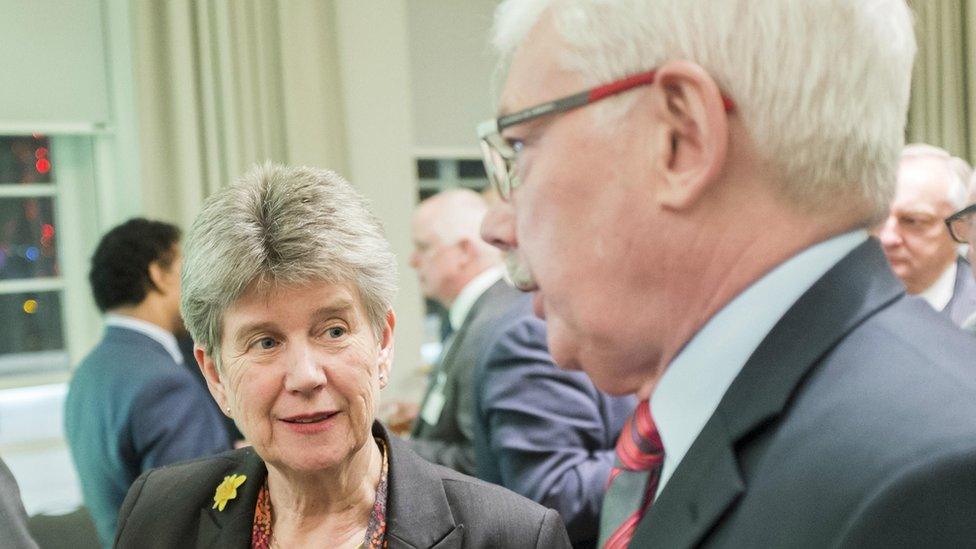
Jane Hutt said Wales had potential to deliver in high-growth sectors like energy
Altogether 50 partners from across industry and academia are involved in the five-year programme.
More than 130 scientists and product developers are working at the centre, which as well as labs has its own £6m pilot production plant.
Other research includes heated floor tiles and coatings which can help water treatment.
The funding announcement - which includes £15m from the EU - was made by Finance Minister Jane Hutt, who hopes it will help drive forward the energy industry.
The rest of the money comes from the Engineering and Physical Research Council, Innovate UK, industry and the two universities. It is aimed at turning the innovation into a commercial proposition.
- Published26 February 2016
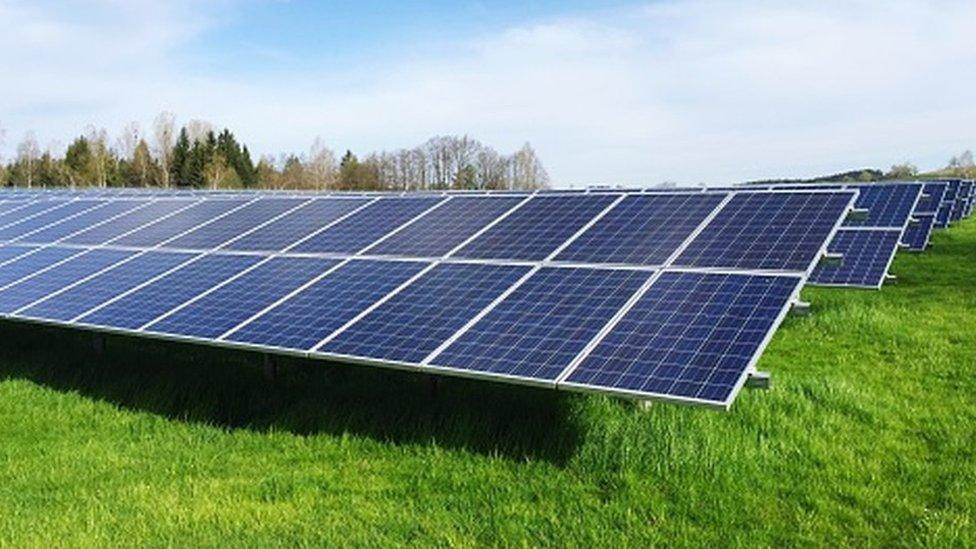
- Published13 March 2014
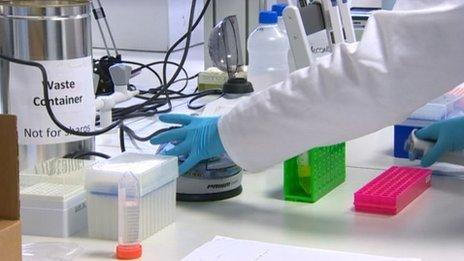
- Published3 February 2016
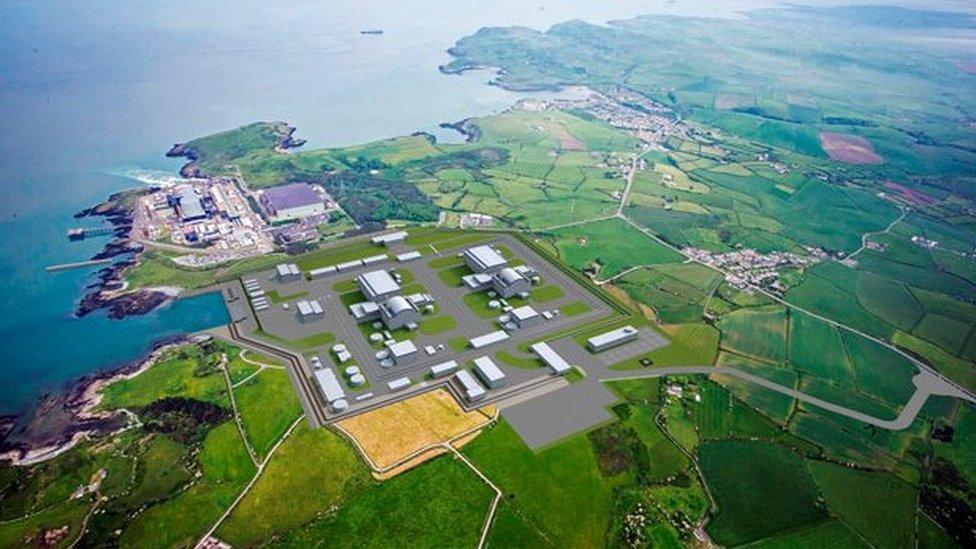
- Published24 February 2016

- Published3 May 2015
